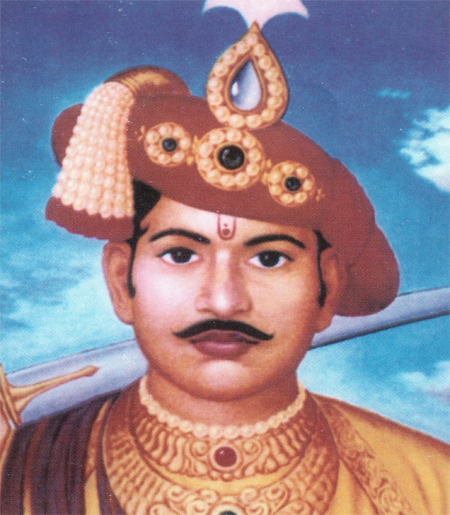Male Rao Holkar: The Forgotten Maratha Ruler

Male Rao Holkar, though not as widely recognized as other Maratha rulers, played a significant role in the history of the Holkar dynasty and the Maratha Empire. Born into a lineage of formidable warriors and statesmen, Male Rao’s short but impactful life continues to intrigue historians and enthusiasts of Indian history. This article delves into the life, achievements, and legacy of Male Rao Holkar, providing a comprehensive overview for those looking to understand this lesser-known figure in Indian history.
Early Life and Background
Birth and Lineage
Male Rao Holkar was born on 26th December 1745 to Khande Rao Holkar and Ahilyabai Holkar. The Holkar dynasty, a prominent Maratha clan, was known for its significant contributions to the expansion and consolidation of the Maratha Empire. Male Rao’s grandmother, Gautama Bai, and great-grandfather, Malhar Rao Holkar, were instrumental in establishing the Holkar rule in Malwa.
Education and Training
From an early age, Male Rao was trained in the arts of warfare and statecraft. His education encompassed traditional learning, military strategies, and the principles of governance. Male Rao's upbringing was deeply influenced by his mother, Ahilyabai Holkar, who was renowned for her wisdom, administrative acumen, and devoutness.
Ascendancy to Power
A Tragic Beginning
Male Rao’s rise to power was marred by tragedy. In 1754, Khande Rao Holkar, his father, was killed during the siege of Kumher. This loss thrust the young Male Rao into a position of responsibility. Under the tutelage of his mother, Ahilyabai, and his grandfather, Malhar Rao, Male Rao was groomed to take on leadership roles within the Holkar dynasty.
Coronation
Male Rao was formally enthroned as the ruler of Indore in 1766, following the death of Malhar Rao Holkar. Despite his youth, his accession was seen as a continuation of the Holkar legacy. Ahilyabai Holkar, who served as the regent, played a crucial role in advising and supporting Male Rao during his reign.
Reign and Governance
Administrative Reforms
Although his reign was brief, Male Rao Holkar initiated several administrative reforms aimed at strengthening the governance of his kingdom. He focused on improving infrastructure, enhancing revenue collection, and ensuring justice for his subjects. The administrative policies implemented during his reign laid the groundwork for the prosperous rule of Ahilyabai Holkar.
Military Campaigns
Male Rao Holkar continued the martial traditions of his forefathers. He led several military campaigns to defend the interests of the Holkar dynasty and the broader Maratha Empire. His efforts in maintaining the security and territorial integrity of his kingdom earned him respect among his contemporaries.
Personal Life and Legacy
Death and Succession
Tragically, Male Rao Holkar's life was cut short when he died in 1767, at the tender age of 21. His untimely death was a severe blow to the Holkar dynasty. Ahilyabai Holkar, who had been his regent, assumed full control of the kingdom after his death. Under her rule, Indore witnessed a golden era of prosperity and cultural renaissance.
Historical Impact
While Male Rao Holkar's reign was brief, his impact on the Holkar dynasty and the Maratha Empire was significant. His leadership during a tumultuous period ensured the stability and continuity of his lineage. His legacy is often overshadowed by the illustrious rule of his mother, Ahilyabai, but his contributions remain an integral part of the history of the Holkar dynasty.
Conclusion
Male Rao Holkar's life, though short-lived, was marked by dedication, bravery, and a commitment to his kingdom. His role in the history of the Holkar dynasty and the Maratha Empire is a testament to the resilience and enduring legacy of the Maratha rulers. As historians continue to uncover and document the rich tapestry of India's past, the story of Male Rao Holkar serves as a poignant reminder of the young prince who, despite his brief tenure, left an indelible mark on the annals of history.

Comments ()